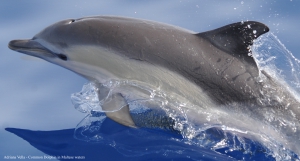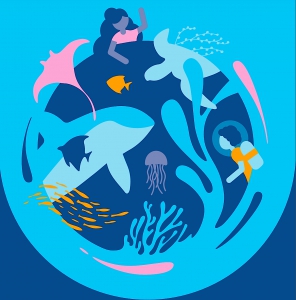Oceans are home to a vast diversity of marine life and generate a considerable amount of ecosystem goods and services that are fundamentally linked to human demands and well being, making our seas both ecologically and economically valuable.
Yet the complexity of marine biodiversity and its resources are usually under-estimated with several marine habitats being poorly understood and the interlinks between various organisms poorly known. Support for necessary marine conservation actions is still poor as are the management measures for marine protected areas. Recent ongoing commercial overexploitation of global resources and increasing environmental changes are of concern not only to environmental managers and conservation biologists but also to policy makers, stakeholders, service-users and the general public.
The loss of marine biodiversity can have a long lasting negative effect on the coastal communities, the blue economy and on the important role these organisms play in ecosystem functioning, ecosystem resilience and human welfare.
Designing a local sustainable development strategy that looks ahead to 2050 can provide a positive framework that allows us to envisage where we want to get to, but this 30-year vision has to be coupled with a number of tangible short-term targets. Such targets are important to periodically ensure that we are on the right track while at the same time keeping us focused not only on the needs of the future generations, but also to consider us, the current generation.
It is our right and duty to make sure that we enjoy clean waters with abundant marine resources that can sustain fisheries and healthy food, while allowing us to appreciate the diversity of species when snorkelling and diving, relaxing and longing for inspiring seascapes while out at sea.

As responsible citizens we need to ensure that our seas are safeguarded for the many irreplaceable benefits it sustains including green gas sequestering and oxygen production. Storage of carbon by marine ecosystems also contributes to climate change mitigation. The Mediterranean Sea is highly exposed to multiple pressures from human activities all around, as it is surrounded by one of the most populated coastal areas in the world and its resources are being safeguarded by different governing systems not always unified in their conservation efforts.
Nonetheless Malta enjoys being right in the centre of this incredible sea considered the cradle of civilisation. The Maltese Islands have 25 nautical miles to manage in integrative way making sure that while human requirements are met, the very fabric of what sustains the incredible biological network of life is protected effectively. To better understand the local needs, local NGOs such as the Biological Conservation and Research Foundation (BICREF), have been at the forefront to identify threats that lead to environmental impacts which can irreversibly cause the loss of marine biodiversity and that can undermine the sustainability of traditional socio-economical activities in the region, such as small-scale artisanal fisheries and ecotoursim.
By working in the field, such NGOs have first-hand encounters of the risks our seas and oceans suffer and are able to come up with suggestions to mitigate environmental problems. Such works helps pave the way to improve local strategies and policies which with adequate monitoring and management allows for sustainable growth that respects our quality of life and resilient marine biodiversity.
Ocean day is there to remind us that we all can do something to improve our marine environment and support effective management of Marine Protected Areas which is urgently required. From disposing of our rubbish in appropriate way that avoids millions of species from dying to reducing noise and lights around our shores to encourage coastal marine life to continue undisturbed with their own life too. SAY NO TO USING PLASTICS AND USING TOXIC CHEMICALS !
The sea has given us life. Shall we give life back to it? International targets for the safeguard of biodiversity has earmarked next year, 2020, for achieving effective conservation and sustainable development. Are we there or close to achieving these targets yet?




